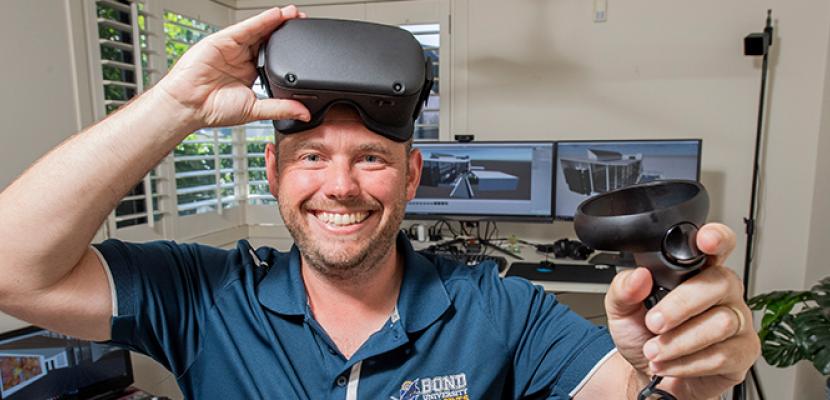
It's that time of year when parents fret about the amount of screen time their kids have had during the holidays – and how to wean them off as school begins.
That challenge looms greater in 2021.
Children spent a record amount of time playing video games and bingeing on YouTube and other online content last year due to COVID-19 lockdowns, rules against gathering in groups, and sport cancellations.
With his own children commencing Prep and Year 3 this week, it is an issue Bond University academic Dr James Birt has also been pondering.
But as an Associate Professor of Computer Gaming, he says rather than demonise screens and gaming, parents and teachers should leverage the opportunities they offer to improve learning at home and in the classroom.
“The pandemic has forced a quantum shift in the way we and our children use screens, both at home and at school,” Dr Birt said.
“Last year we saw the widespread rollout of online learning from primary to tertiary level.
“As enterprise moves from face-to-face to video conferencing and with growing demand for micro-credential courses, online learning -- mixed with traditional face-to-face teaching -- is here to stay.”
Dr Birt said it was unrealistic to expect kids to go cold turkey from games and devices. His tips:
- Communicate -- let them know it’s okay to play games but they can’t play for eight hours a day during the school week.
- Negotiate -- provide non-screen activities and start reducing screen time in 30-60 minute blocks to a manageable time. Remember that children will be busy and screen time will naturally be reduced.
- Be understanding -- games are not only for entertainment, they can be used to educate, for example Minecraft Education, Matheletics, Literacy Planet and Reading Eggs.
Meanwhile, Bond University Associate Professor of Psychology Peta Stapleton says students may be feeling anxious and less motivated as the pandemic spills into a new school year.
Optimism that 2021 would offer a reset after a troubled 2020 has given way to the reality that COVID-19 still has some way to run and could disrupt schooling again.
“There is little certainty another lockdown won’t happen and the recent and fast Brisbane outbreak and lockdown showed this,” Dr Stapleton said.
“Students may feel less motivated going back to school, wondering if things like their carnivals, formals or graduations will actually happen.”
Dr Stapleton said parents should encourage their kids to find a routine.
“As much as possible, having a routine, whether during lockdown or in normal life, is a protective factor for mental health,” she said.
“We all like to have consistency and boundaries, even if teens appear to reject them. It is a basic human need or want for structure and consistency.”
Dr Stapleton says her top tip for both students and parents is having multiple ways to destress.
“I encourage my kids to have at least five ways to destress so that if one way doesn’t work, they have four more to try,” she said.
Dr Stapleton says parents should “check in” with children through conversation.
“It doesn’t have to be a sit-down chat, it could be when driving in the car or walking past,” she said.
“Try to connect as a family -- like having dinner together with no devices a certain number of nights per week.
“If teens know parents are always there and willing to chat, they might be more likely to come to them when they need it.”

